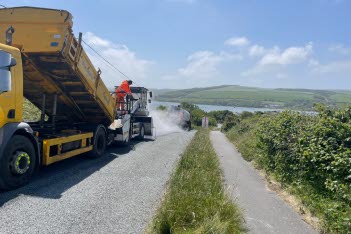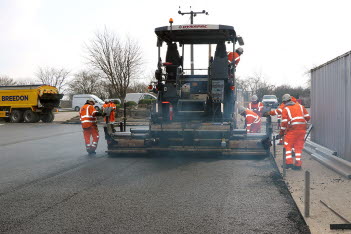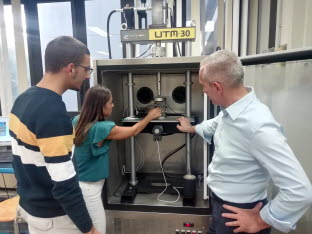-
The Brains of Nynas: Hilde Vandeneede
During her many years at Nynas, Hilde Vandeneede has gathered an impressive experience from her various positions focusing on both technology and marketing. Last year, Hilde was appointed Bitumen Product Manager. Find out what’s on her mind.
-
Net Zero Asphalt Surfacing
With new innovative technology, it may be possible to meet the UK asphalt industry's 2040 net-zero carbon target. An important step in this direction is a notable road project in which Nynas has played a crucial role.
-
The Case for Surface Dressing
Planned preventative maintenance using Surface Dressing has been proven to be more cost-effective and environmentally friendly than reactive repairs, as emphasized in a recent British campaign.
-
Building Roads Sustainably
The Institute of Asphalt’s Annual Conference is an important event for the UK road industry. This year’s theme is sustainable development and Nynas will be there to talk about our new product range Nypol RE as well as other ways in which we contribute to reducing the climate impact of the asphalt sector.
-
PMB with biogenic material reduces climate impact
Nypol RE is a newly developed, polymer-modified bitumen with biogenic material that increases the useful life of the pavement while reducing climate impact.
-
Brains of Nynas: Sarah Badley
Sarah Badley works as Bitumen Sales Manager, covering the North of England, but is also responsible for the Nynas Bitumen Customer Service Centre in the UK. She joined Nynas in 2014, having spent many years working in the motor industry with brands including Porsche, Mercedes-Benz and BMW. Find out what's on her mind.
-
Ring road around Umeå, Sweden
Umeå, the biggest city in the northern part of Sweden, has for many years had problems with poor air quality due to heavy traffic passing through central parts of the city. To meet environmental quality standards, and also to improve road safety and accessibility, a new, 30-kilometre ring road is currently being built around the city.
-
Large infrastructure investments in Denmark
The parties in the Danish parliament have agreed to invest around EUR 22 billion in the country’s infrastructure between now and 2035; the biggest Danish infrastructure plan ever.
-
Ancona, Italy
As part of Nynas wide-ranging research and development initiatives, there are several collaborations under way with both customers and research institutes. One of these is a research project with the University of Ancona in Eastern Italy.
-
Natural bitumen in the Tower of Babel
Researchers have been able to show that bricks in the mighty tower were bonded with natural bitumen
News










